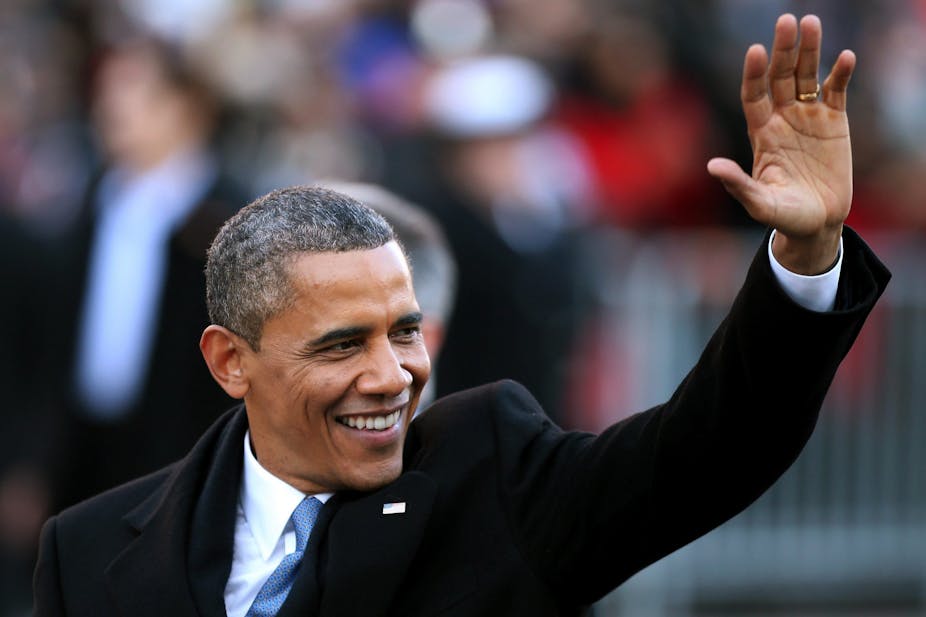US President Barack Obama’s first inaugural address was largely forgettable.
Recognising the large divide between the soaring optimism of his campaign rhetoric and the realities of an economy in the midst of collapse, the president spent most of his speech tamping down expectations.
It was an address heavy in platitudes and light in substance, and his declaration that the country was ready to move beyond its bickering sounds positively quaint in retrospect.
One could be forgiven for expecting a similar tepid performance today. Inaugural addresses are rarely memorable. Instead, in a speech that will inspire Democrats and frustrate conservatives and perhaps some moderates, Obama delivered what some have called the most progressive and ambitious statement of his political career.
Obama opened his speech by referencing the Declaration of Independence and the nation’s founding. By creating a government for the many and not for the few, the president explained, the Framers were giving Americans the opportunity to shape their own destiny and more fully realise the promises of the founding generation.
“For we have always understood that when times change, so must we, that fidelity to our founding principles requires new responses to new challenges, that preserving our individual freedoms ultimately requires collective action.”
Obama repeatedly emphasised the link between individual freedom and economic opportunity. And he did so in terms that were more unabashedly progressive than we’ve seen in the recent past.
Gone were the repeated references to deficits and debt reduction. There was a mention of the need to make hard choices to reduce health care costs and spending. But the overwhelming focus was on promoting economic growth and opportunity and defending the social safety net and the “basic measure of security and dignity” it provides.
“The commitments we make to each other – through Medicare, and Medicaid, and Social Security – these things do not sap our initiative; they strengthen us. They do not make us a nation of takers; they free us to take the risks that make this country great.”
Of course, these statements are not concrete policy promises. But they provide insight into the president’s mindset and priorities as the nation prepares for another heated and high-stakes round of budget negotiations.
Those on the left who worried that Obama was ready to accept large-scale cuts to entitlement programs as part of a broad debt reduction deal will no doubt find solace in his statements today.
There was also a sizeable chunk of space devoted to climate change with Obama clearly outlining the country’s obligations to future generations. The argument was framed in economic terms as well as moral; the world is inevitably moving towards a clean energy economy and the US should be leaders not followers in this transition.
Right now, there’s no chance of any sort of carbon pricing bill getting through Congress. Such a proposal would meet fierce opposition in the Republican controlled House of Representatives and wouldn’t have the votes to override the Senate filibuster.
But there are smaller steps that the executive branch can take unilaterally. And in any case, positions evolve and Obama advocating for action will certainly influence the politics of a topic that had disappeared almost entirely from the national debate.
This wasn’t intended as a divisive speech. But it certainly wasn’t a tribute to compromise or post-partisanship either. The president put forth a specific vision of America; a vision that he believes the country shares along with him.
Four years down the road Obama’s first inaugural address feels stale and dated. I think posterity will judge this one in a more favourable light.
But it remains to be seen how much success he will have in translating this vision into policy during his second term.

